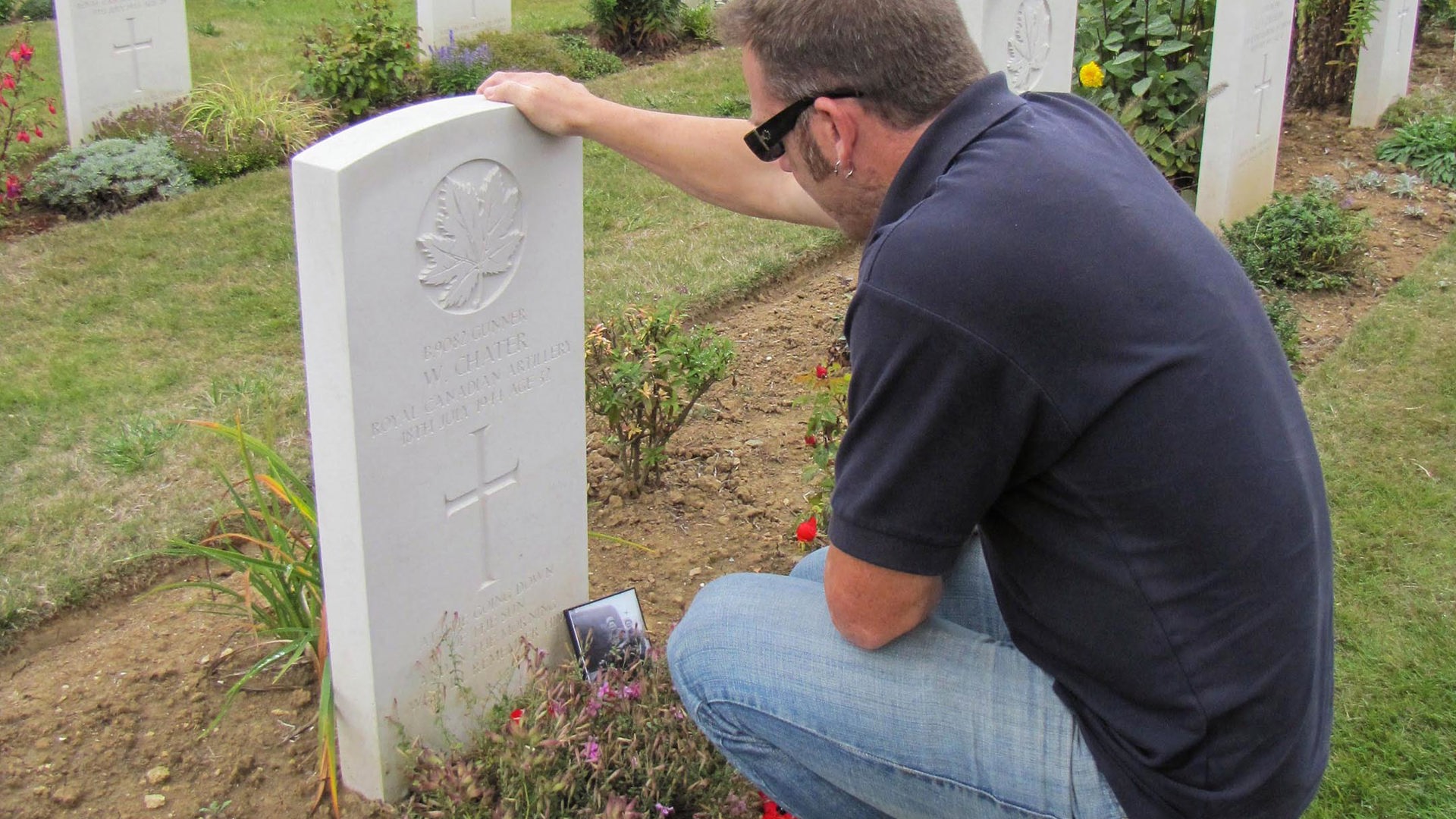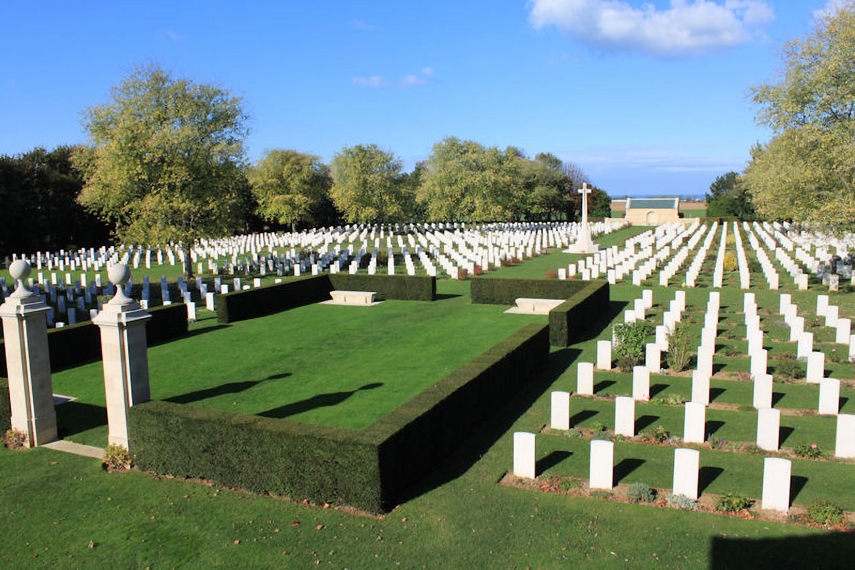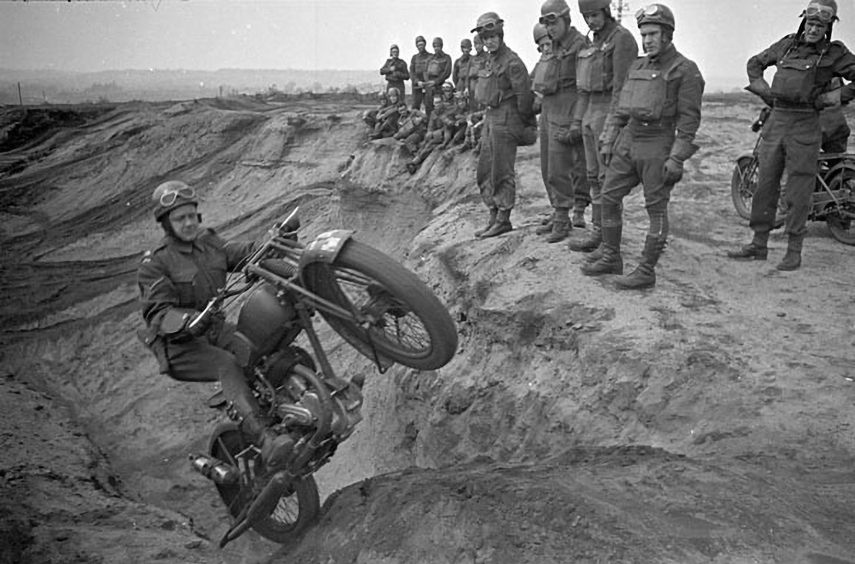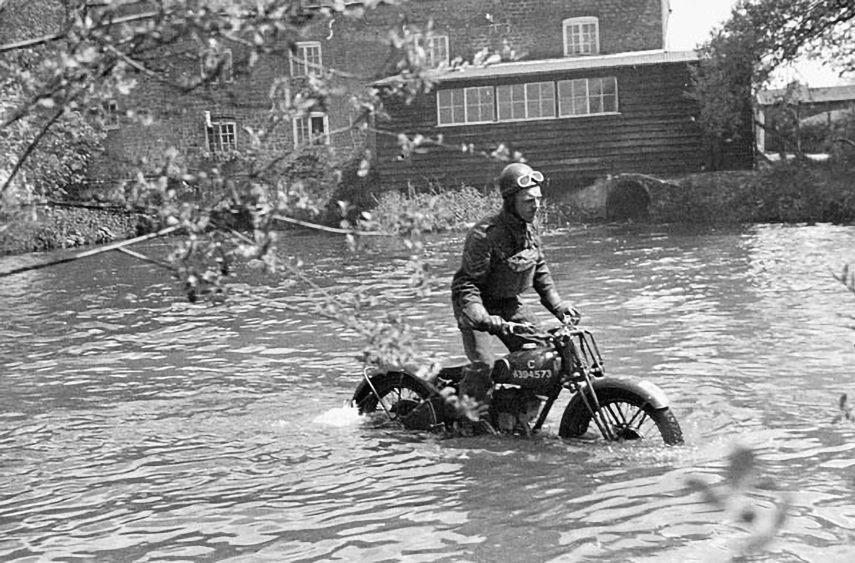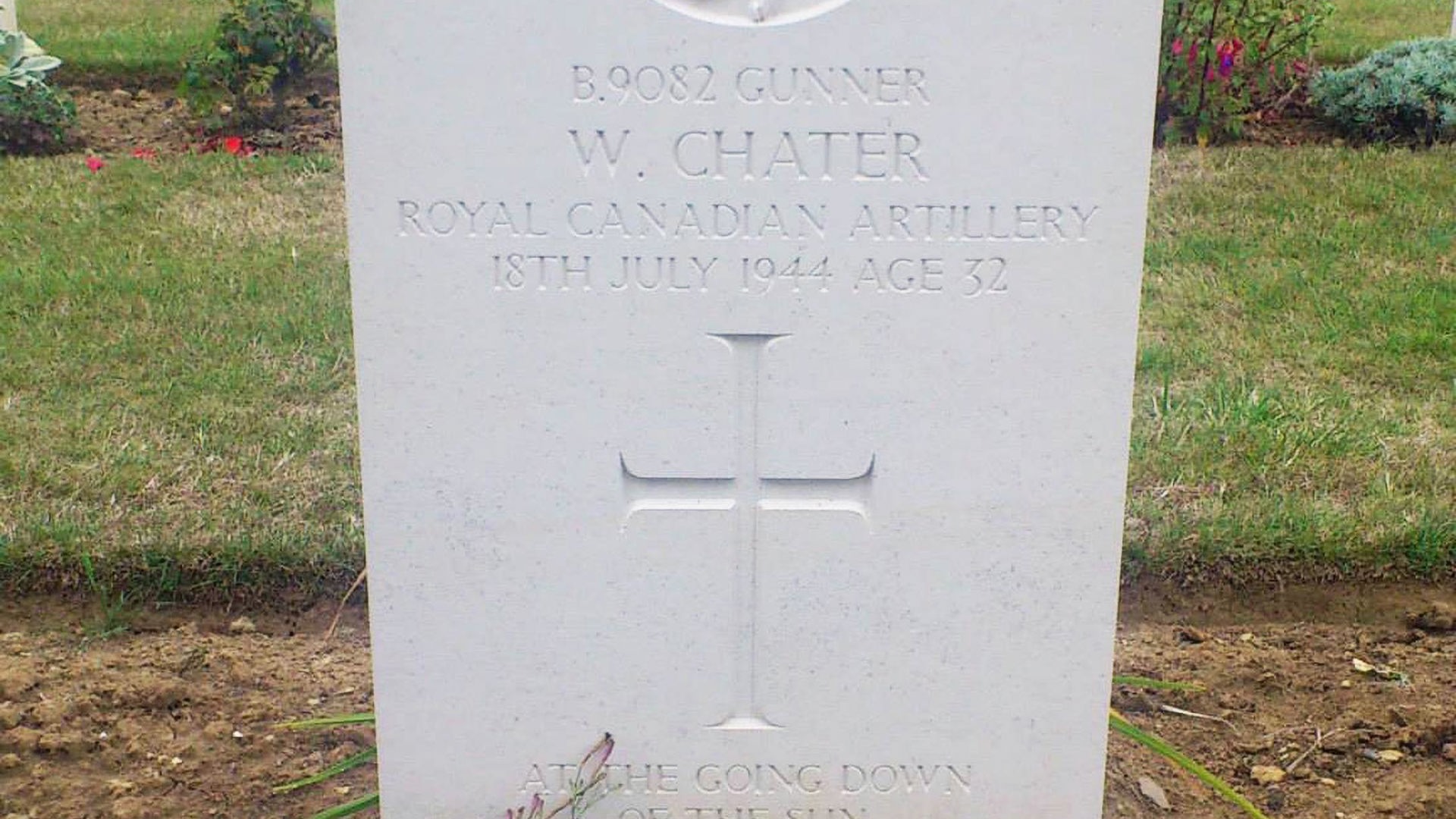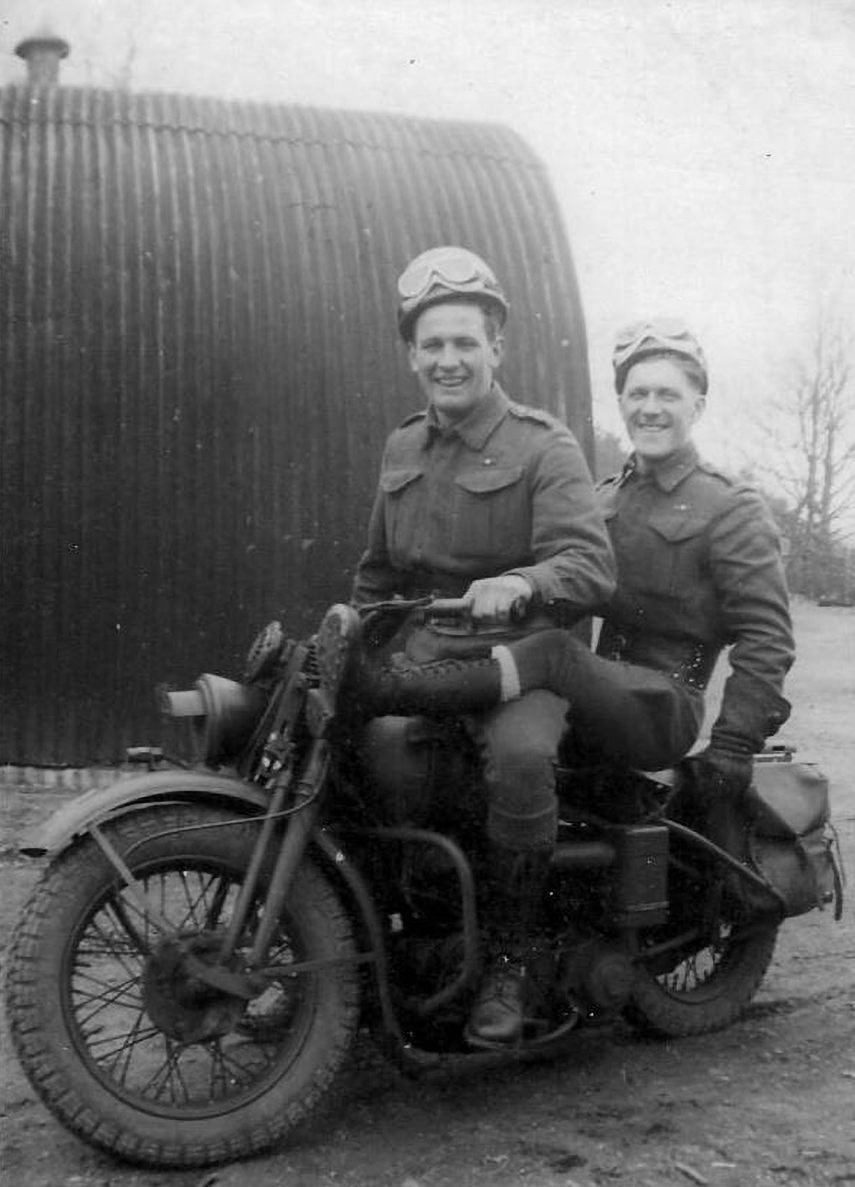Originally published on Canada Moto Guide: Opinion: A Motorcycle Dispatch Rider’s Legacy
Matthew Chater never had the chance to meet his paternal grandfather Walter, but it is easy to see the family resemblance from the old worn-out photographs his grandmother cherished. Matt’s late father Tom, who sadly succumbed to cancer in 1987, was conceived prior to his own father’s deployment for service in Europe. He only ever knew his dad from stories relatives would tell and those same old photos.
The most poignant was sent from the front lines in Normandy, France. Captured during his final days, Chater is broadly grinning as he sits aboard a Harley-Davidson motorcycle with an unidentified fellow soldier. It would be the last photo ever taken of him.
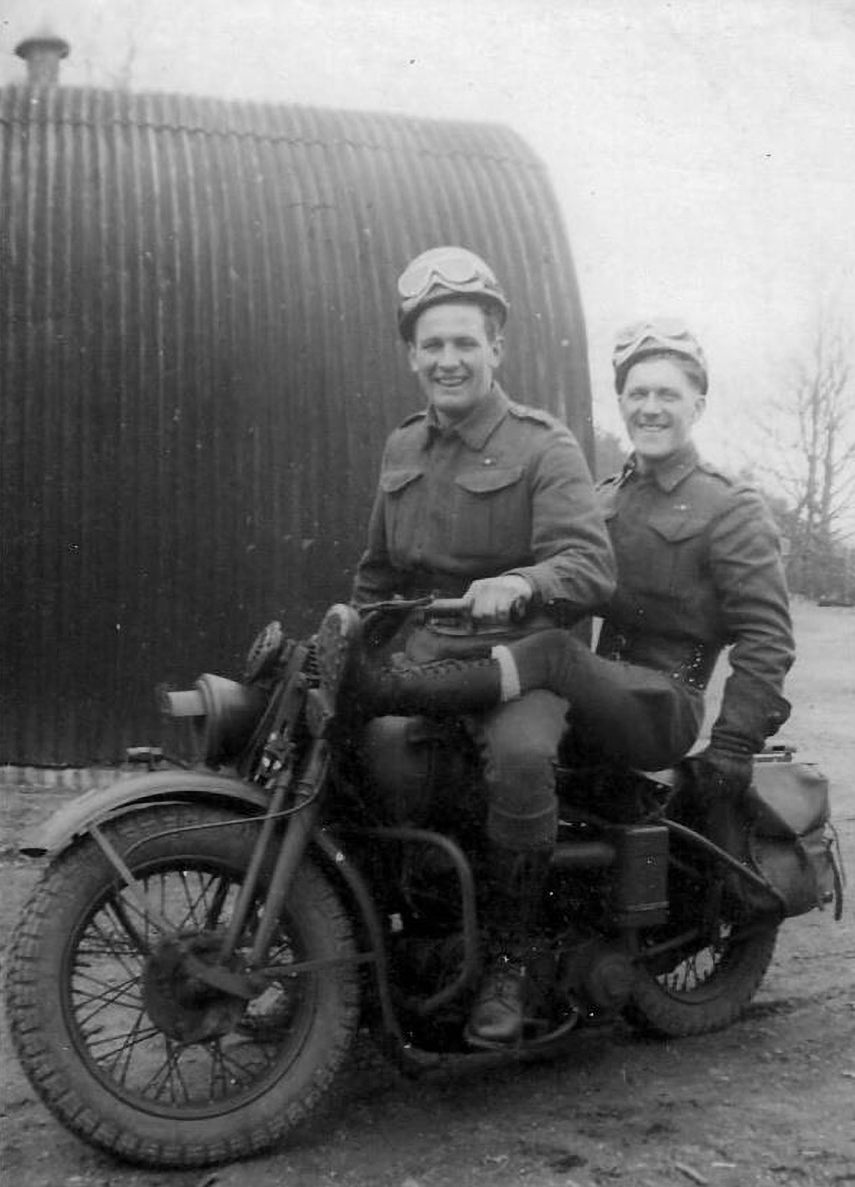
It came as no surprise to his family that Walter had volunteered to be a motorcycle dispatch rider in the aftermath of D-Day. A known daredevil with a penchant for speed, he competed in six-day bicycle races at a velodrome constructed in Maple Leaf Gardens. Crashes and injuries were commonplace; an often grave but accepted risk by those who participated. He also rode a motorcycle (spiritedly) around Toronto before the war. One tale in particular involves Chater piloting his motorcycle into the lavish lobby of the Royal York Hotel one night – much to the shock and anger of its staff.
Dispatch riders could get vital correspondence from one place to another faster and more covertly than other modes of transportation. For this reason, the job of a motorcycle dispatch rider was a dangerous one. Carrying important messages and gaining pertinent information of enemy status and position through reconnaissance missions, they were a high-value target. Riding alone through hostile territory armed only with a service pistol, gear and rations were often shed to save weight. Day and night, rain or shine, messages had to get through. Lives depended on it.
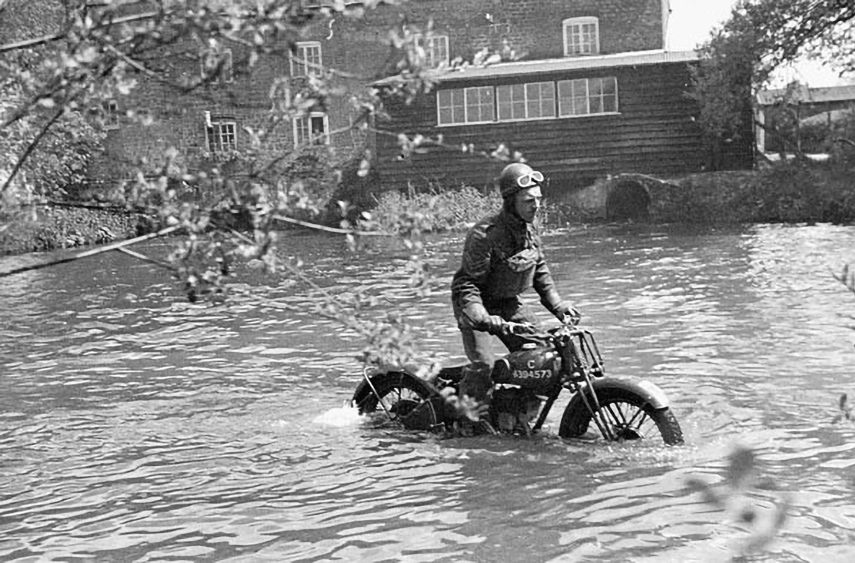
Chater rode a 1943 Harley-Davidson WLC. Based on the WL 45 solo civilian model, it was produced to US Army specifications for Canadian Armed Forces duty during World War II. The single-rider design featured a 740 cc (45 ci) engine. Equipped with a headlight shield, it was also common practice to insert pieces of metal or cardboard into the headlamp compartment in order to focus the beam directly ahead and avoid detection from airplanes, infantry gunners, and snipers.
The details leading up to and following D-Day are few and far between. Chater’s family has slowly been piecing together the last fateful days of the 32-year-old Toronto native’s life ever since. What they do know is that in the chaotic aftermath of D-Day, Walter managed to locate his brother Eric who had also landed safety and was stationed not far from him in France. He was granted permission for a short visit.
Roads, when there were roads, were littered with booby traps. Unfortunately for Chater, there were also land mines. Upon his return from seeing his brother on July 18th, 1944, he encountered one such explosive device which detonated immediately upon impact. It was instantaneous, violent, and fatal. Walter, a loving son, a brother, a husband and father, would not be returning home to his loved ones.
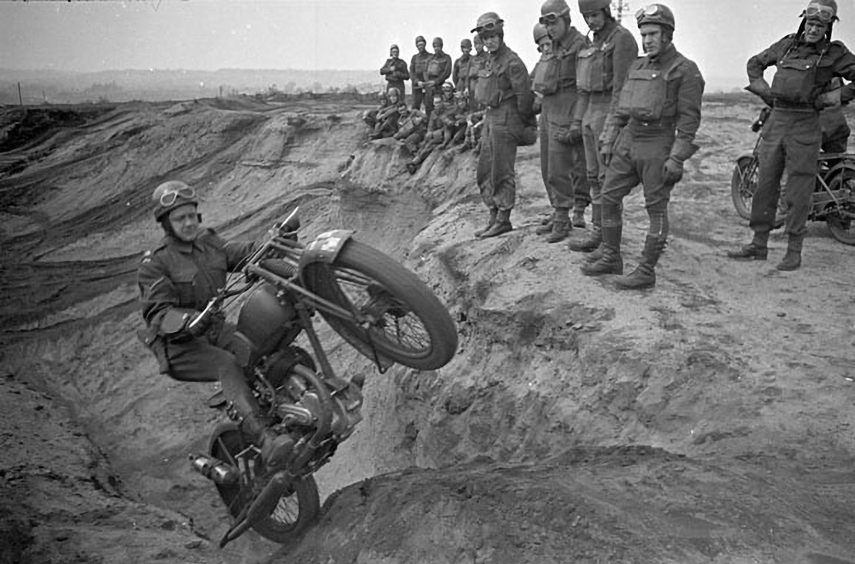
Walter’s grandson Matt, like his own father, shares obvious hereditary traits – including a mischievous Cheshire grin. An accomplished racer in his own right who managed to miraculously survive an accident on the road where he sustained a broken back, among many other bones, Matt shares his grandfather’s need for speed.
In 2013, Matt travelled to the Canadian War Cemetery in Bény-sur-Mer with his wife Carolyn on their honeymoon to visit the final resting place of the grandfather he never knew. Located at Reviers, about four kilometres from Juno Beach in Normandy, the site is located in a beautiful, tranquil field overlooking the ocean. Surrounded by thousands of gravestones marking fellow fallen soldiers, it is a stark reminder of lives cut short far too soon. A sombre and emotional experience, it brought forth a rush of tears as Matt reflected on the fragility of life, the horrors of war, and the dire sacrifices made for freedom from tyranny and injustice. More personally, how the triviality and brutality of war directly impacted the lives of his family, tearing a hole that would never be filled. Overwhelmed with pride by the significance of his grandfather’s service, a great sadness washed over him as he knelt at the grave of a man he wished so desperately to have known. The weight of that pain was amplified by the loss of his own father, who grew up without a dad and never had the chance to visit his grave site in Normandy.
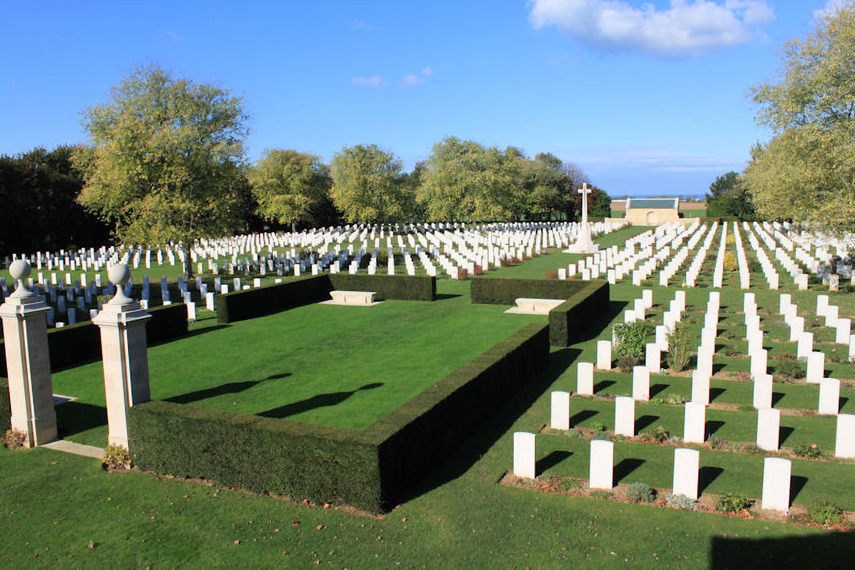
The heart-wrenching circumstances of Walter Chater’s death, and the loss experienced by his family is tragic, but unfortunately it is not unique. Across Canada, countless families have stories of their own. Some steadfastly contributed to the war effort from home, while others crossed the ocean to foreign lands where they experienced unimaginable conditions and unspeakable horrors. Many never returned. Those who did come home were never the same. Shells of their former selves, they were burdened with the loss of their brothers and their own innocence. Post-traumatic stress disorder had yet to be defined and recognized. Depression, anxiety, and a host of other serious and wide-ranging mental afflictions were merely diagnosed as shell shock. Men were told to simply soldier on, while others received archaic treatments like electroshock therapy.
Everyone made sacrifices during wartime, but many young men and women paid the ultimate price.
Today, and every November 11, Matthew will be solemnly remembering his grandfather Walter. We should all take a moment to honour our veterans today. Their courage and sacrifice provide us the freedom we enjoy every day. And for that, we owe them a great deal more than we can ever repay. A moment of silence is the least we can do.
